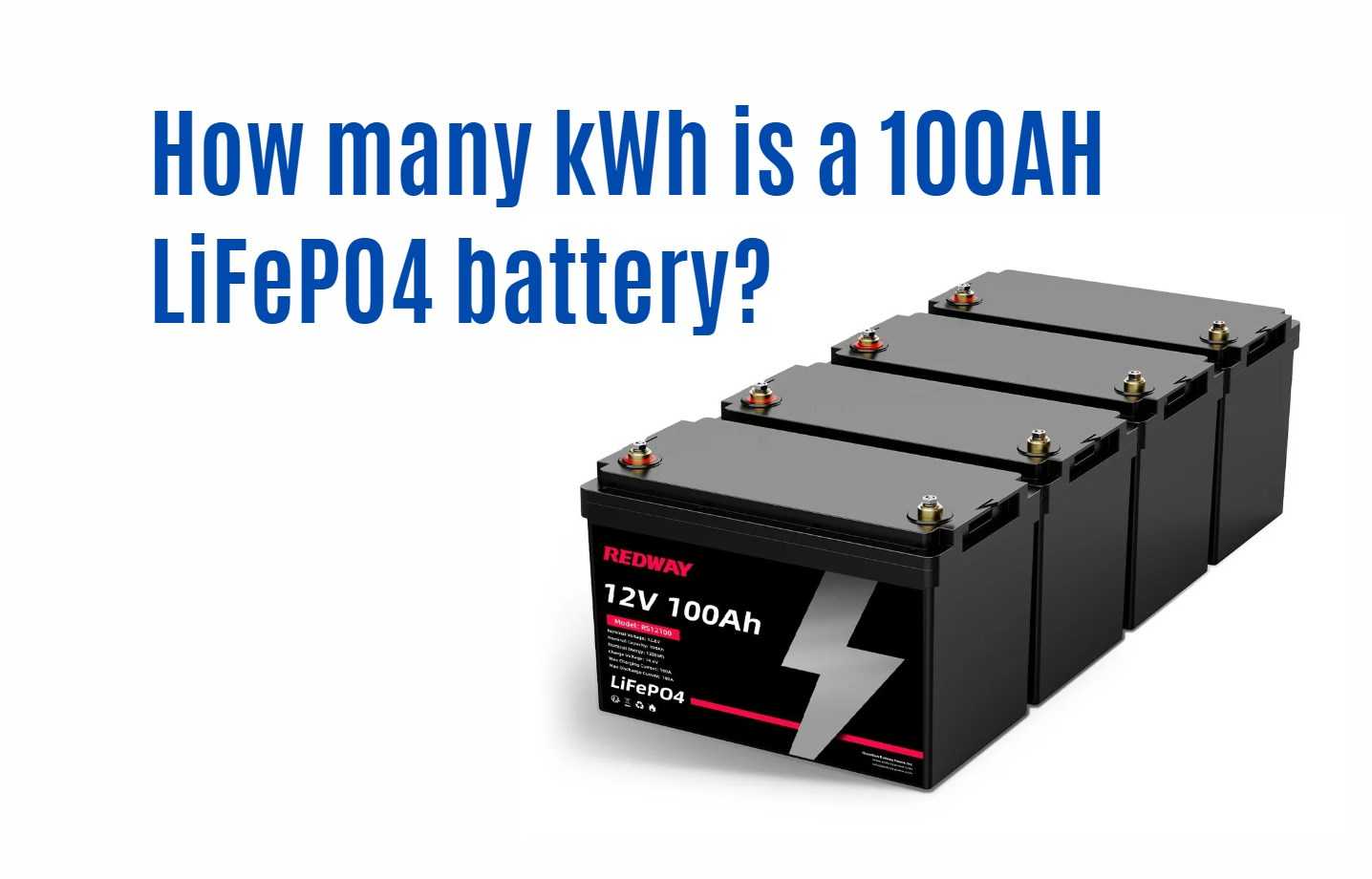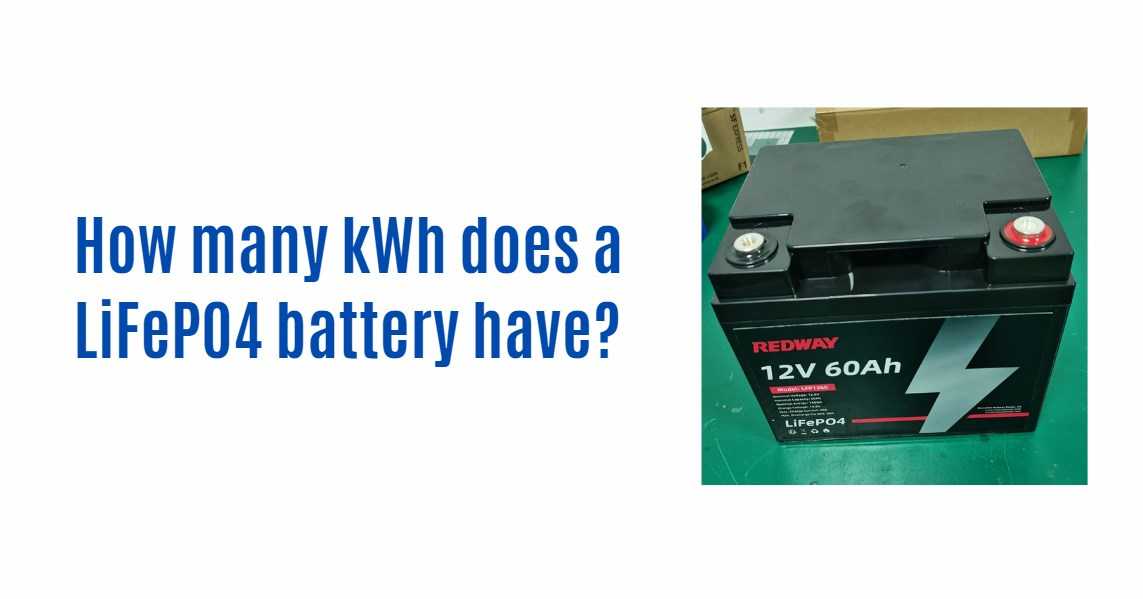When it comes to energy storage solutions, understanding the capacity of your LiFePO4 battery (Lithium Iron Phosphate) is crucial for optimizing performance in various applications. One common question arises: How many kWh is a 100Ah LiFePO4 battery? In this article, we will explore the calculation of energy capacity, the implications of using a 100Ah LiFePO4 battery, and its practical applications in real-world scenarios.
Understanding Battery Capacity
Battery capacity is typically measured in amp-hours (Ah), which indicates how much current a battery can supply over a specific period. To convert amp-hours to kilowatt-hours (kWh), we must also consider the nominal voltage of the battery.
Key Characteristics of LiFePO4 Batteries
- Nominal Voltage: A standard LiFePO4 cell has a nominal voltage of approximately 3.2V. For a 12V system, which is common for many applications, four cells are connected in series.
- Energy Density: LiFePO4 batteries offer high energy density and long cycle life, making them suitable for various uses, including solar energy storage and electric vehicles.
Calculating kWh from Ah
Wholesale lithium golf cart batteries with 10-year life? Check here.
To convert amp-hours to kilowatt-hours, we use the following formula:
Formula:
Want OEM lithium forklift batteries at wholesale prices? Check here.
Example Calculation for a 100Ah LiFePO4 Battery:
Assuming we are dealing with a typical 12V LiFePO4 battery:
- Capacity: 100Ah
- Voltage: 12V
Using the formula:
Thus, a 100Ah LiFePO4 battery at 12V has an energy capacity of 1.2 kWh.
Practical Applications of a 100Ah LiFePO4 Battery
1. Solar Energy Storage
A 100Ah LiFePO4 battery can be an excellent choice for solar energy storage systems. With a capacity of 1.2 kWh, it can store enough energy to power small appliances or lights during the night or cloudy days.
2. Electric Vehicles
In electric vehicles (EVs), a 100Ah battery can provide sufficient range for short trips or serve as part of a larger battery pack for longer journeys. The lightweight nature and efficiency of LiFePO4 make it an attractive option for EV manufacturers.
3. Recreational Vehicles (RVs) and Marine Applications
For RVs and boats, having reliable power sources is essential. A 100Ah LiFePO4 battery can power essential devices such as lights, refrigerators, and navigation systems without the weight and maintenance issues associated with lead-acid batteries.
Data Chart: Comparison of Battery Capacities
| Battery Type | Capacity (Ah) | Voltage (V) | Energy (kWh) | Typical Applications |
|---|---|---|---|---|
| Lead-Acid | 100 | 12 | 1.2 | RVs, backup power |
| LiFePO4 | 100 | 12 | 1.2 | Solar systems, electric vehicles |
| Lithium-ion (NMC) | 100 | 12 | 1.2 | Consumer electronics |
| Lead-Acid | 200 | 12 | 2.4 | Larger RVs, off-grid systems |
Latest News on Lithium Battery Technology
As of October 2024, advancements in lithium battery technology continue to evolve rapidly:
Innovative Energy Management Systems
New energy management systems are being developed that optimize the use of stored energy in batteries like LiFePO4. These systems enhance efficiency by intelligently managing power distribution based on real-time usage patterns.
Sustainability Initiatives
The industry is increasingly focusing on sustainable manufacturing practices for lithium batteries, including recycling initiatives aimed at reducing environmental impact while improving energy density.
FAQs About LiFePO4 Battery Capacity
1. How long will a 100Ah LiFePO4 battery last?
The duration depends on the load applied to the battery. For example, if you draw 200W continuously:
Duration hours =kWhLoad kW =1.20.2=6 hoursDuration hours =Load kW kWh=0.21.2=6 hours
2. Can I use a 100Ah LiFePO4 battery with solar panels?
Yes, it is commonly used in solar setups to store energy generated during the day for use at night or during cloudy weather.
3. What is the lifespan of a LiFePO4 battery?
LiFePO4 batteries typically have a lifespan exceeding 2000 cycles, depending on usage conditions and maintenance practices.
4. Are there any special charging requirements?
Yes, it is essential to use a charger specifically designed for LiFePO4 batteries to ensure safety and optimal performance.
Conclusion: Understanding the Capacity of a 100Ah LiFePO4 Battery
In conclusion, a 100Ah LiFePO4 battery provides an energy capacity of approximately 1.2 kWh, making it suitable for various applications such as solar energy storage, electric vehicles, and recreational vehicles. By understanding its capacity and potential uses, we can make informed decisions about integrating this technology into our energy solutions.At Redway Battery, we specialize in manufacturing high-quality lithium LiFePO4 batteries tailored to meet diverse needs across various applications. For quick quotes on custom solutions or wholesale inquiries, feel free to contact us today!







